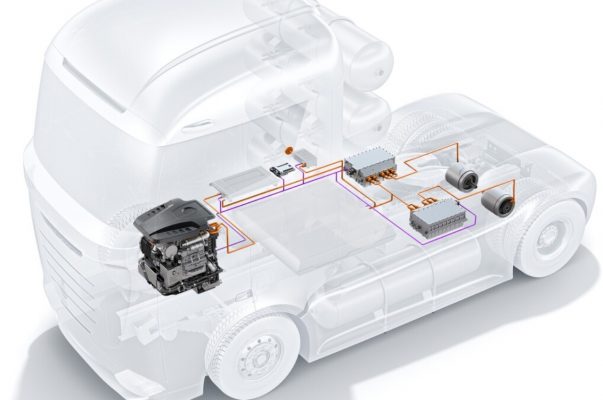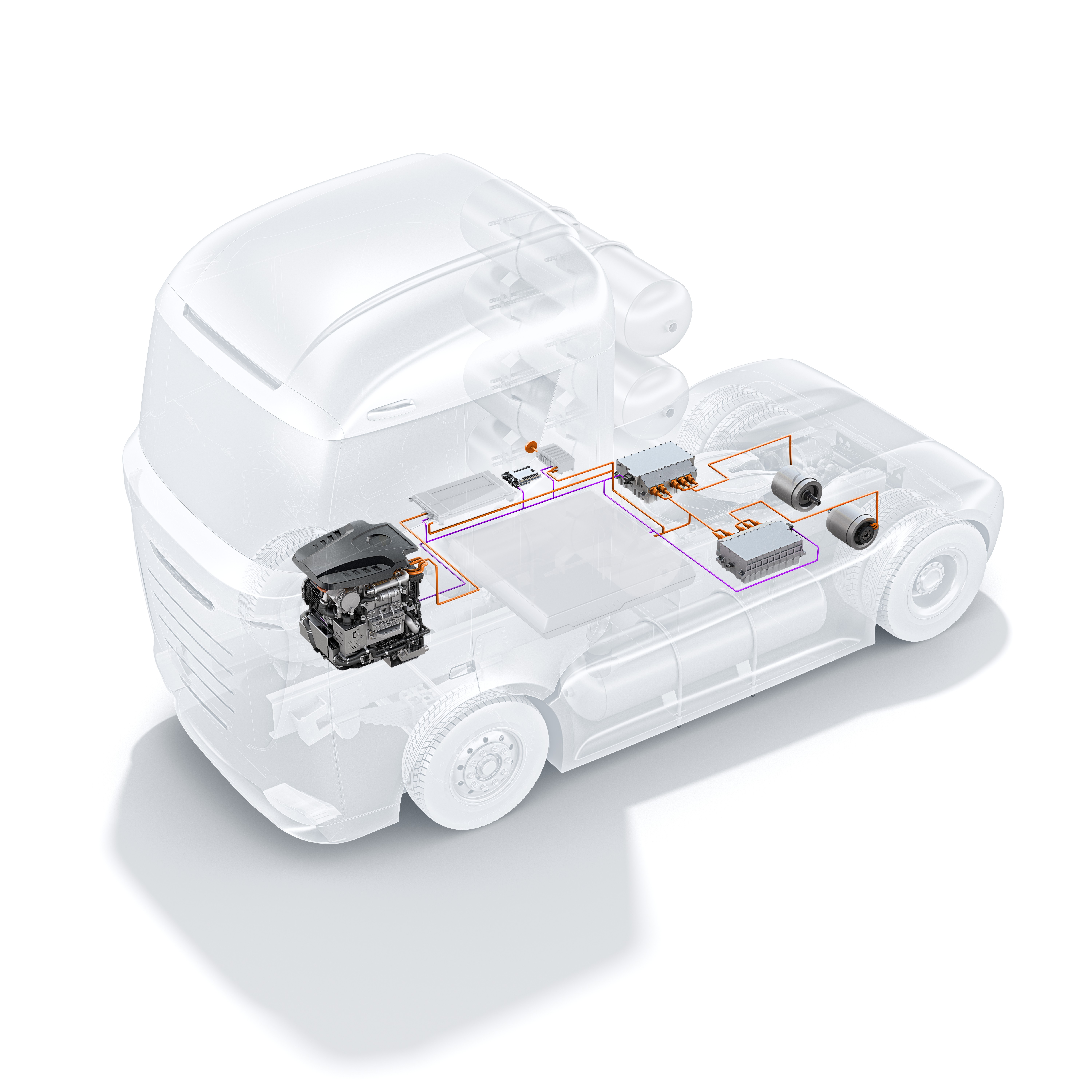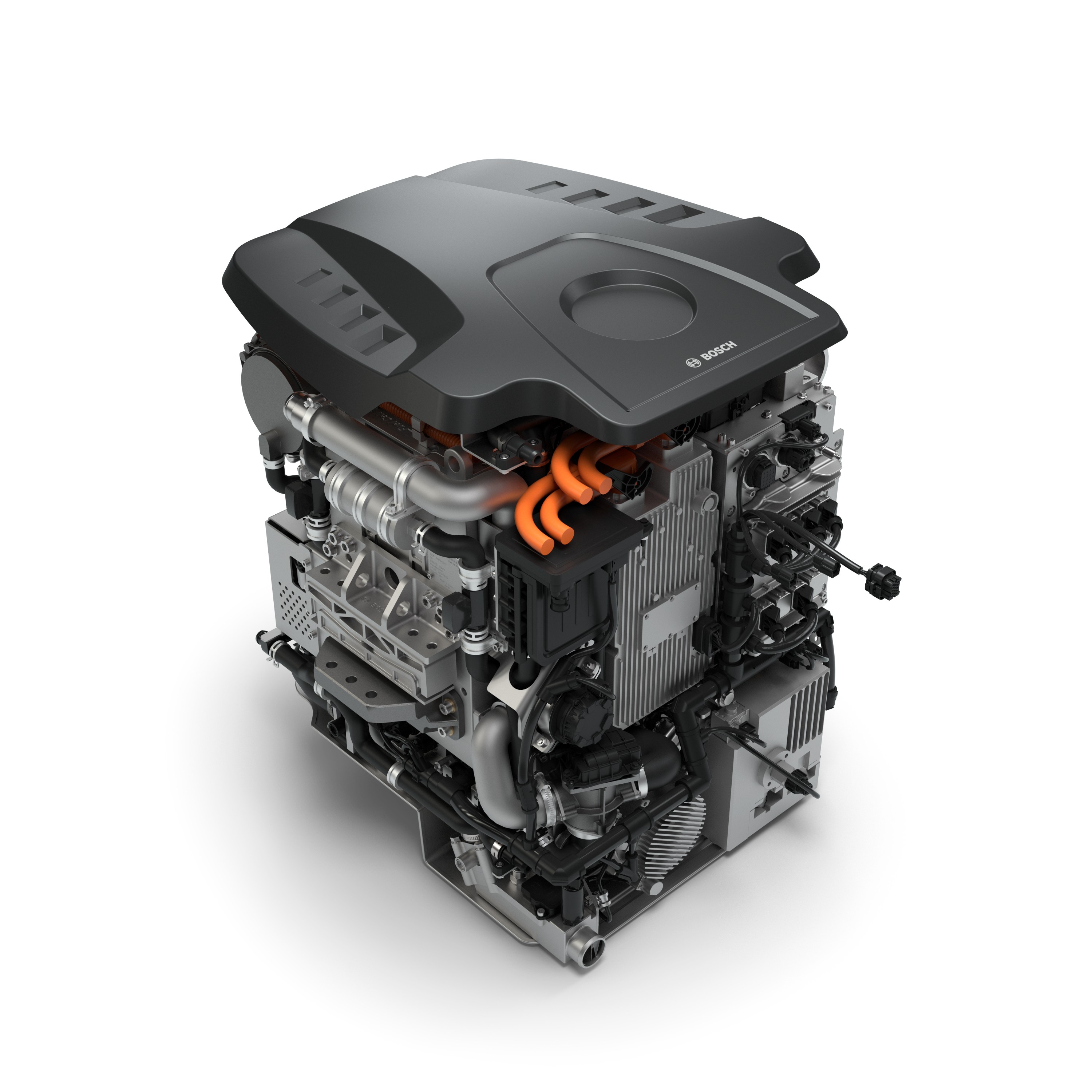Stuttgart/Chongqing, China – Bosch is taking the next step to help fuel cells as emission-free drive solutions achieve a global breakthrough. Together with the premium commercial vehicle manufacturer Qingling Motors, the company has now established a joint venture in China, named Bosch Hydrogen Powertrain Systems (Chongqing) Co. Ltd. The new company will develop, assemble and market fuel cell systems – so-called Fuel Cell Power Modules – for the Chinese market. The goal is to pool the technology and market expertise of both partners and contribute to the development of the Chinese fuel cell market and the transformation of the automotive industry there. According to the Energy Saving and New Energy Vehicle Technology Roadmap 2.0 by the China Society of Automotive Engineers (China-SAE), more than one million vehicles with fuel cell drive systems could be registered in China by 2030. The joint venture aims to provide all Chinese vehicle manufacturers with fuel cell systems. The components required for this, such as the fuel cell stack, air compressor with power electronics, and control unit with sensors, come from Bosch, mainly from the plant in Wuxi. Small-scale production will start there this year. Also in 2021, a test fleet of 70 Qingling trucks equipped with Bosch’s Fuel Cell Power Module will hit the road. The market launch of the fuel cell system is planned for 2022/2023.
“We are now literally picking up speed in the industrialization of the fuel cell. Innovative technologies and strategic partnerships are the ideal fuel for rapidly achieving the goal of making road traffic as climate-neutral as possible.”
Stefan Hartung, Bosch board of management member and chairman of the Mobility Solutions business sector
Fuel cell expertise combined with market know-how
“We are now literally picking up speed in the industrialization of the fuel cell. Innovative technologies and strategic partnerships are the ideal fuel for rapidly achieving the goal of making road traffic as climate-neutral as possible,” says Stefan Hartung, Bosch board of management member and chairman of the Mobility Solutions business sector. For years now, Bosch has been working with Qingling in China in the areas of fuel injection and the exhaust-gas treatment. “We are pleased to continue our successful cooperation with Bosch,” says Du Weidong, chairman of Qingling Motors. “The recent cooperation not only represents a milestone on the path to the industrialization of the mobile fuel cell, but also a significant contribution to the further development of the Chinese automotive industry.”
Bosch is bringing its expertise in fuel cell systems to the joint venture. As a premium manufacturer with a complete portfolio ranging from light to medium to heavy trucks and a strong commitment to electrification and fuel cells, Qingling is contributing its commercial vehicle know-how as well as years of experience in the Chinese truck market. “China is the most important growth market for electromobility,” says Hartung. “Especially for large, heavy vehicles that travel long distances, the fuel cell offers clear advantages over the battery-electric powertrain.”
Bosch is consistently driving forward the industrialization of the fuel cell
Bosch believes in a hydrogen future and is continuously investing in this area. The company has already built up development and application competences with its fuel cell activities in China. Last year, the fuel cell center in Wuxi was built. The task now is to prepare the necessary manufacturing capacities for the components which will also be supplied to the joint venture. Bosch is thus strengthening its engagement in the Chinese market.
At its German locations in Bamberg, Feuerbach, and Homburg, Bosch is also driving forward the industrialization of the fuel cell. Together with the Swedish specialist Powercell, Bosch is currently developing the fuel cell stack to be market ready, in order to start large-scale production on its own from 2022 onwards.





















